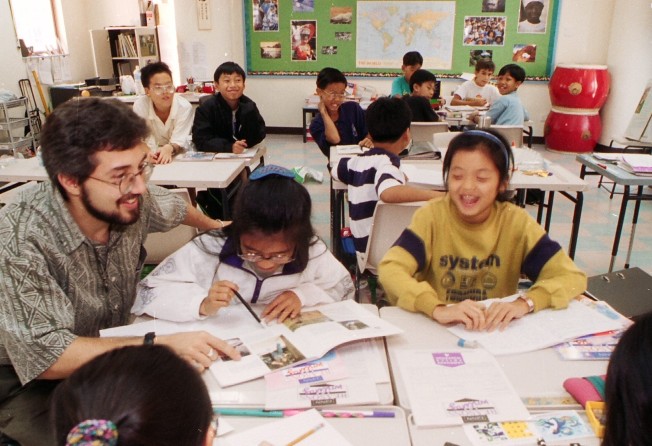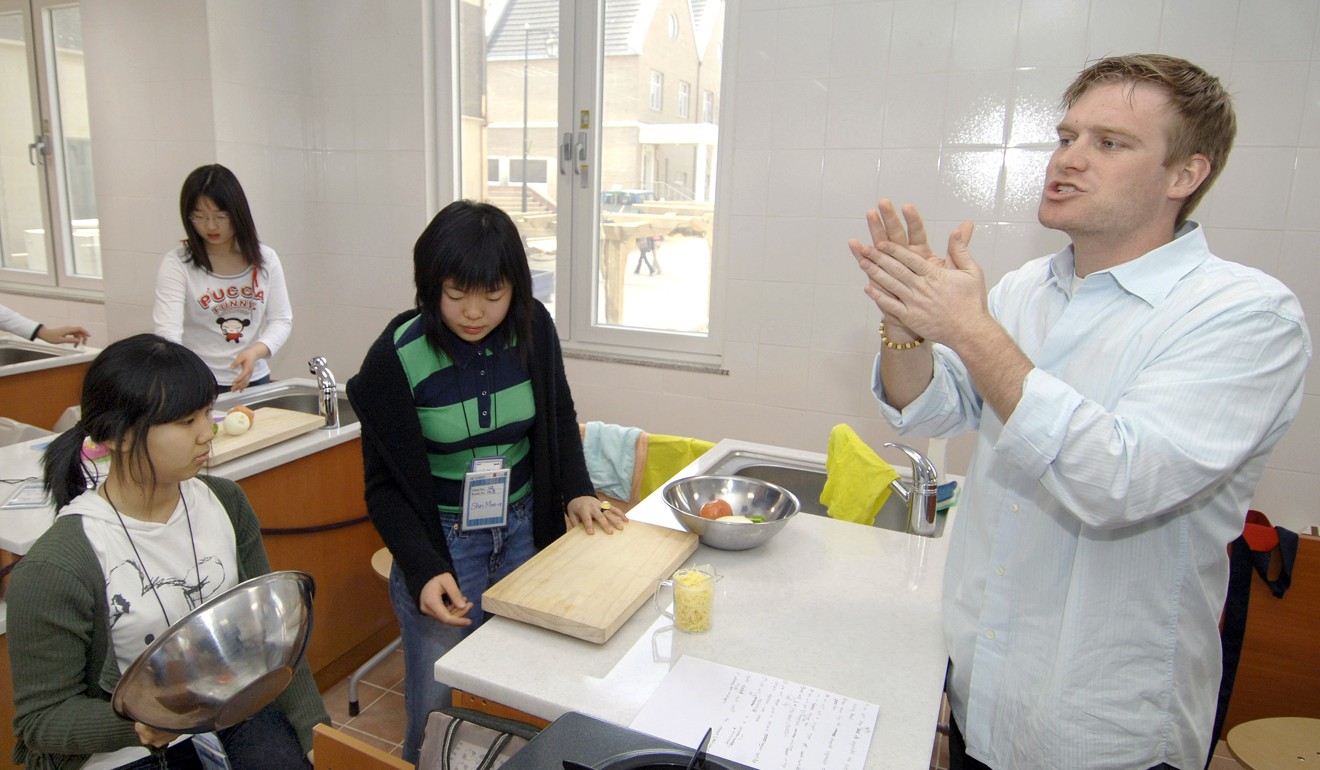
Class war: do native English speakers deserve special treatment when teaching in South Korean schools?
- Korean teachers complain that foreigners make more money than them for doing the same work, and locals can do the job just as well

A teachers’ union in South Korea is lobbying to lower the number of native English speakers who teach the language in Seoul’s public primary schools, insisting qualified Koreans can be just as effective.
Many foreigners do not hold formal academic degrees and are therefore less qualified than local teachers who could teach lessons on their own, according to the Korean Teachers and Education Workers Union.

Currently, the country has a co-teaching system in primary school English lessons, where a native speaker is paired with a South Korean.
“Elementary education is a very special area, so it’s important to have experts with professional knowledge,” said Kim Hong-tae, education policy chief of the union, which represents 70,000 teachers – one-fifth of the country’s total.
Kim said getting rid of native English-speaking teachers would be cost-effective, adding that the union was talking to the Seoul Metropolitan Office of Education (SMOE) about the matter.
Native English-speaking foreigners with bachelor’s degrees earn between 1.8 and 2.5 million won (US$1,599-US$2,221) per month teaching at public schools – depending on their experience and qualifications – and are given free housing on top of their salary, as well as airfare to and from the country.
Fresh local graduates sometimes earn less than non-Koreans during their early years.
SMOE is planning to expand the programme by adding 90 English teachers, so that they are at about 430 primary schools by the end of the year.
A commissioner from SMOE who asked not to be named said: “We’ll place 70 more teachers in the first half [of 2019] and 20 in the second half.”

As of last month, SMOE had native English-speaking teachers at 341 of its primary schools. The commissioner said schools and parents were positive about the placement scheme.
“We are trying to put native teachers in any schools that wants them,” the commissioner said.
Lee Sunkyung, a primary schoolteacher of English from Busan, said there were concerns about lower demand for teachers given the shrinking birth rate, which fell to a record low last year. South Korea’s population is expected to start declining in 2027 as fewer babies are born and the population ages.
“Korean university students who majored in education have no guarantees to be a teacher,” Lee said. “[Teachers] also complain that native [English-speaking] teachers’ wages are much higher than new Korean teachers’.”
She did point out that foreign teachers help encourage younger students to engage with the language, however. ”Communication with native speakers is the best motivation to study English for students,” she said.
Other proponents of the programme say South Korea’s English education system is rigid and too focused on grammar, leading students to cram for tests without learning conversational skills. This puts them at a disadvantage when they study abroad or apply to work for global companies.
Foreign teachers have also been valued for giving students a rare chance to interact with non-Koreans. South Korea remains a homogenous country, with English teachers the only exposure some students have to Westerners, especially students from lower income families who cannot afford to travel or study abroad.